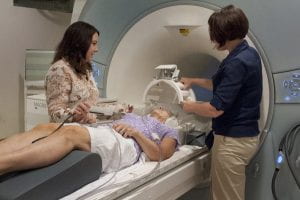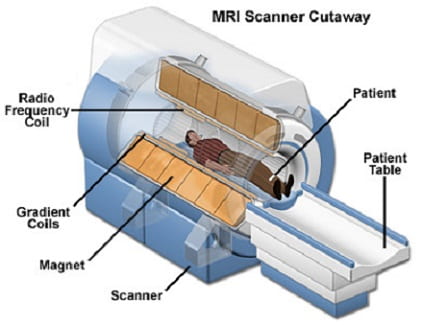Contents
Welcome Prospective Participants!
If you have interests or questions, or to schedule an appointment, please complete the contact form:
We can also be reached directly:
Nancy Dennis, PhD, Professor of Psychology
Lab Phone: 814-865-0878
Lab Email: CANLABatPSU@gmail.com
441 Moore Building, Pennsylvania State University, University Park 16802
fMRI Studies
During your visit to the MRI scanner facility, you will spend about an hour completing tasks outside the scanner, which may include measurements of cognitive function or memory tests. Then you will proceed with the MRI scan, which will last about an hour. You will perform similar tasks as you did outside the scanner, except you will be completing them while the MRI scanner takes pictures of your brain. It is vital that you remain as still as possible for the duration of the MRI scan.

Eligibility Requirements:
- Be between 18-30 or 60-85 years of age
- Be a native English speaker
- Have at least a high school diploma
- Have no history and be on no medication for: Psychiatric disorders or diseases (e.g., depression, anxiety, mood disorders) or neurological disorders or diseases (e.g., stroke, head injury, epilepsy, seizures, brain tumor, brain surgery, Parkinson’s Disease)
- Have no untreated high blood pressure
- Have no pacemaker, metal implants, prosthetics, pins, plates, or metal fragments in body or eye (Dental fillings are OK)
What is an MRI?
MRI, or magnetic resonance imaging, is a tool we use to image the brain while it is performing a cognitive task. This allows us to detect the location and magnitude of brain activity involved in the various types of cognitive functions we study. MRI allows us to view and record the changes in your brain activity during the time you are in the scanner.
Images are acquired using a combination of very powerful magnets and radio waves that alter the position of atoms in the body so that they reflect back a signal that is interpreted to show the composition of tissue (brain anatomy) or the amount of blood flow (brain activity).
MRIs are non-invasive and do not involve any X-rays, radiation, or injections. Currently there are no known risks from exposure to the magnetic fields and radio waves used in Magnetic Resonance Imaging; it is not assured that harmful effects will not be recognized in the future. One known risk is that strong magnetic fields attract iron or steel metal objects, posing a safety risk. Prior to entering the scanner you will be given a questionnaire to determine if you have any foreign metal objects in your body such as a pacemaker, shrapnel, metal plate, etc. (see eligibility above). There is also a small risk of discomfort from claustrophobia, periods of immobility, and exposure to the noise of the magnet. To avoid these risks we screen people who are (or think they might be) claustrophobic, or would have trouble lying still on their back for an extended period. In addition, all participants are required to wear ear plugs while inside the scanner.

Frequently Asked Questions (FAQ’s)
Do participants receive their testing results?
No, you would not receive your testing results. We are taking these images for research purposes only.
Who performs the MRI testing?
The MRI testing would be conducted by a trained fMRI technician while a CAN lab member under the direction of Dr. Dennis, our research professor, assists with the cognitive task data collection.
How much will I be compensated for my participation?
You will be paid $10/hr for time spent in the lab and $20/hr for time spent inside the MRI scanner. You will fill out a payment form each time you participate and a check will be mailed to you within a week.
Can I participate in more than one study?
Definitely. We have many different behavioral and MRI studies running throughout the year. Participation in more than one study is encouraged.
Do you provide parking?
Yes. We reimburse for parking in the Nittany Lion Inn parking deck located directly adjacent to the Moore building. We also provide free parking in the lot directly adjacent to Chandlee, which houses the MRI scanner.
My spouse or friend is interested in participating as well. Can the two of us come at the same time and participate together?
Yes. While we don’t always have the facilities to run both of you through the experiment at the same exact time, we can stagger your activities so that as long as each of you doesn’t mind a little extra ‘waiting time’, you can still drive in with your spouse or friend.
If I live far away, but occasionally make trips to the State College area, can I arrange in advance to participate at a convenient time?
Yes. We can schedule study appointments far in advance and even accommodate you with special two-in-one appointments to reduce the number of visits you need to make to participate in a study.